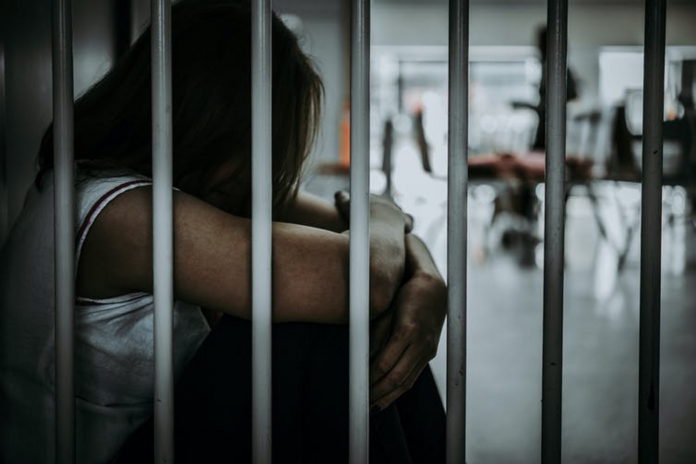Psychologist Dr Rebecca Myers has faced some of the UK’s most twisted and dangerous sex offenders – and has nightmares about their sickening crimes.
She admits years of hearing awful details during rehabilitation sessions have taken a toll. But one astonishing episode behind bars convinces her that her efforts are worthwhile.
Rebecca was in a group discussion when one man flipped and lunged at her. In a split second, fellow prisoners leapt to her defence to restrain the attacker.
Mum-of-two Rebecca, 48, says: “The one time I’ve really been in a position where I was physically in danger was when I was in a treatment group and one of the offenders was very young, very angry and very big.
“I was interrogating him and he didn’t like it. I was asking him some really difficult questions. He suddenly shot out of his chair and came towards me. I was scared.
“But what was really interesting was that it was the other sex offenders who came to my help and stopped him.
“They were out of their chairs immediately. They protected me and got there before the prison officers did.
“By that point, we had begun to know each other as people. They knew me as Rebecca – the woman who was in there trying to help them. They knew me as a person – and I knew them as human beings as well.”
Rebecca, from North Yorkshire, was 22 when she first entered a maximum security prison and she started working on a flagship sex offender rehab programme two years later.
It challenged prisoners with psychological techniques to change their thinking. She has faced psychopaths and serial killers.
In her new memoir she tells of shocking moments like having a bloodied, headless pigeon thrown at her.
Another time she saw a female prison officer taken hostage at knifepoint and held for 12 hours.
Studying prisoner files has been draining. Rebecca says: “I have heard about the most awful degrading things that human beings do to each other. So it’s normal that it would affect me.
“I have learned to have a scientific detachment from work, to keep it separate. But of course it spills over into my dreams and occasionally I get triggered by everyday things when I’m not expecting it.
“It’s particularly bad when cases relate to the age or gender of my own children and it becomes much more personal. You have to stop yourself from saying, ‘What if that was my child?’ I get suspicious of men with children, even in a normal environment like a supermarket or a park.
“I’m asking, ‘What’s the relationship there? Is that child safe?’ I’m like an overactive smoke alarm – overzealous and overprotective.
“I fear for my own safety more and fear walking on my own in the dark, or even in the day on a country path.
“Once, when walking the dogs, I came across a man parked in a layby on his own. I was thinking, ‘What’s he doing there?’ It took me straight back to an offence where a man parked up in laybys and kidnapped women, pretending his car had broken down.”
Rebecca’s rehab role often involved being left alone with offenders. She says: “I had an alarm on my belt, an alarm on the wall and officers were on the wing outside.
“The thinking was that the prisoners needed to be able to open up and have a confidential conversation with you, without officers listening in.
“I could count on the fingers of one hand the number of times where I felt physically threatened. But I’m always aware. I don’t become complacent.”
Many people might struggle to understand how Rebecca can see such criminals as capable of redemption. She responds: “I go in with the attitude that everybody can and everybody should get the chance to change.
“I am not condoning their actions or suggesting we should have forgiveness – we’re not sympathisers.
“It’s about stopping offenders from doing it again.”
But some situations test her to the limit. Graphic crime accounts can even make her feel physically ill – especially if young children are the victims.
One of her first cases involved helping a rapist who broke into the homes of single women and attacked them while wearing an animal mask. When Rebecca heard the details of his crimes, she vomited.
Certain place names connected with cases can send shivers down her spine. And Rebecca is wary of men in bars, of friends’ boyfriends and people on trains or buses at night.
But one of her toughest moments was being told the sex offender treatment programme she worked with was being scrapped.
A Ministry of Justice review in 2017 found inmates who went to group sessions were more likely to reoffend.
Inevitably, those who return to crime make the headlines – while little is heard of the success stories.
Rebecca, now in a different role in criminology, also always has the victims in the forefront of her mind.
She adds: “It is really, really difficult because I work face-to-face with the actual people who have done this to them. You’ve got to be objective but that is very difficult to do when you see the faces of the people who have been affected by the criminals.
“What I hold in my head is that the ultimate goal is to stop this from happening again. I like to believe I have prevented further sexual abuse.”

